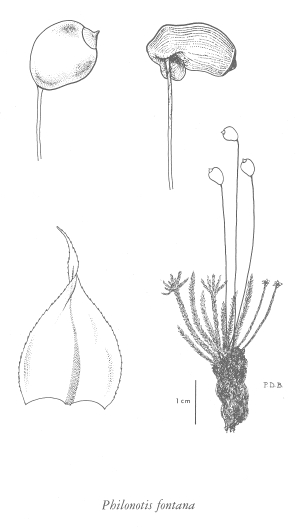E-Flora BC: Electronic Atlas of the Flora of British Columbia
Philonotis fontana var. pumila (Hedw.) Brid.
philonotis moss Bartramiaceae Species Account Author: Wilf Schofield Extracted from Some Common Mosses of British Columbia Introduction to the Bryophytes of BC
|
||||||||||||||||||||||||||||||||||
